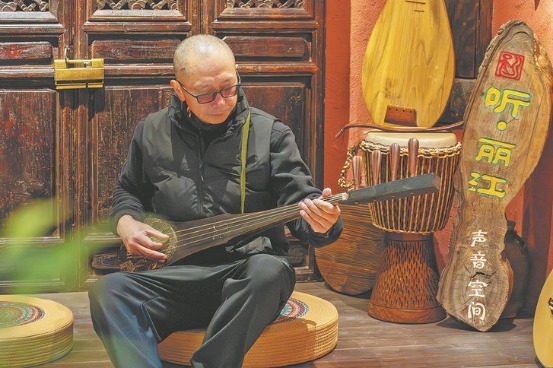Health services, rail operators collaborate on lifesaving 'relay'

URUMQI-At the request of the mother of a critically ill infant calling for urgent medical assistance, people from two areas of Northwest China's Xinjiang Uygur autonomous region completed an 11-hour "relay race" to come to her aid.
The infant, who was seven days old and weighed 3.56 kilograms on June 30, was being treated at a hospital in Hami city for gastrointestinal perforation, a condition which can cause septic shock, a potentially life-threatening condition.
After a comprehensive evaluation by doctors, it was determined that the boy was in desperate need of more complex medical procedures at another hospital in the regional capital Urumqi, some 539 kilometers from Hami.
The infant's parents and his doctors contacted the Urumqi Children's Hospital and boarded a bullet train to Urumqi with the help of railway authorities.
Following an emergency surgery conducted by medical workers, the child pulled through. "The boy is currently recovering in the hospital. He is out of danger and his vital signs are stabilizing," says Yang Yuexia, who is in charge of the neonatology department at the Urumqi Children's Hospital.
"Knowing that my baby was severely ill, I felt like the sky was falling," Mukaram Yusup, the infant's mother, recalls.
Faced with their situation, the parents and doctors made a phone call to Urumqi Children's Hospital at about 5:30 pm on June 30, saying they needed an urgent intercity hospital transfer for the infant.
Upon receiving the notice, the Urumqi Children's Hospital established a three-person team and prepared the medical equipment the boy would require, including respirators, fearing that the baby would develop breathing difficulties and other emergency conditions during his long trip.
The doctors in Hami had also brought him some medicine that could be used in case of further emergency before his departure.
The hospital preparations were all set. However, a new problem emerged: How could they transport the patient to Urumqi in a timely manner without exacerbating his condition?
There are no direct flights between the two locations, and it would take at least eight hours for an ambulance to travel by road. On that day, temperatures in some areas along the route were set to exceed 40 C, which would pose a risk to the infant, with the long-distance transfer potentially providing a double blow, according to doctors.
They then turned to Xinjiang's railway authorities for help and boarded an Urumqi-bound bullet train, together with the Hami doctors, at around 8:20 pm.
Upon receiving notice, railway authorities activated an emergency response mechanism.
"To take better care of them during the trip, we brought the mother a blanket and asked a mechanic aboard to adjust the temperature of their carriage to keep them warm," says Wang Juan from China Railway Urumqi Group Co.
Wang says they also reassured the mother by sharing with her real-time locations of the train. "We asked her many times, 'What can we do for you and your baby?' But she didn't ask for a lot, worrying about putting us to any trouble."
At 11:10 pm, the train arrived at Urumqi station, where an ambulance was already waiting at the platform. With the coordination of local traffic police, the vehicle delivered them to the hospital as quickly as it could.
"When the patient was transferred to the hospital at about 11:40 pm, he was in serious condition-his breathing was short and his heart rate was higher than normal," says Yang, who picked him up at the station. They gave the infant treatment sessions while organizing multidisciplinary consultations.
Following the operation, performed by approximately nine medical workers, which lasted from 2:30 am to 4:20 am, the infant finally pulled through and was sent to the neonatal intensive care unit.
The mother says the attending doctor shared with them daily information on the boy's recovery through the messaging app WeChat. "According to the recent feedback, our baby is recovering well, his ventilator has been removed, and he will be able to drink breast milk in a few days."
According to Yang, the infant is recovering, though, depending on his condition, a second surgery might be necessary.
The lifesaving "relay race" lasted for some 11 hours, and the joint effort of the various departments involved has been met with gratitude.
"I couldn't imagine how I would have survived this difficult time without the support and coordination from railway and hospital authorities in both Hami and Urumqi," Mukaram Yusup says.
The mother adds that, although she can't remember the names of many of the people who had helped her, they are remembered in her heart. "I would say thank you to them in person if I could."




































